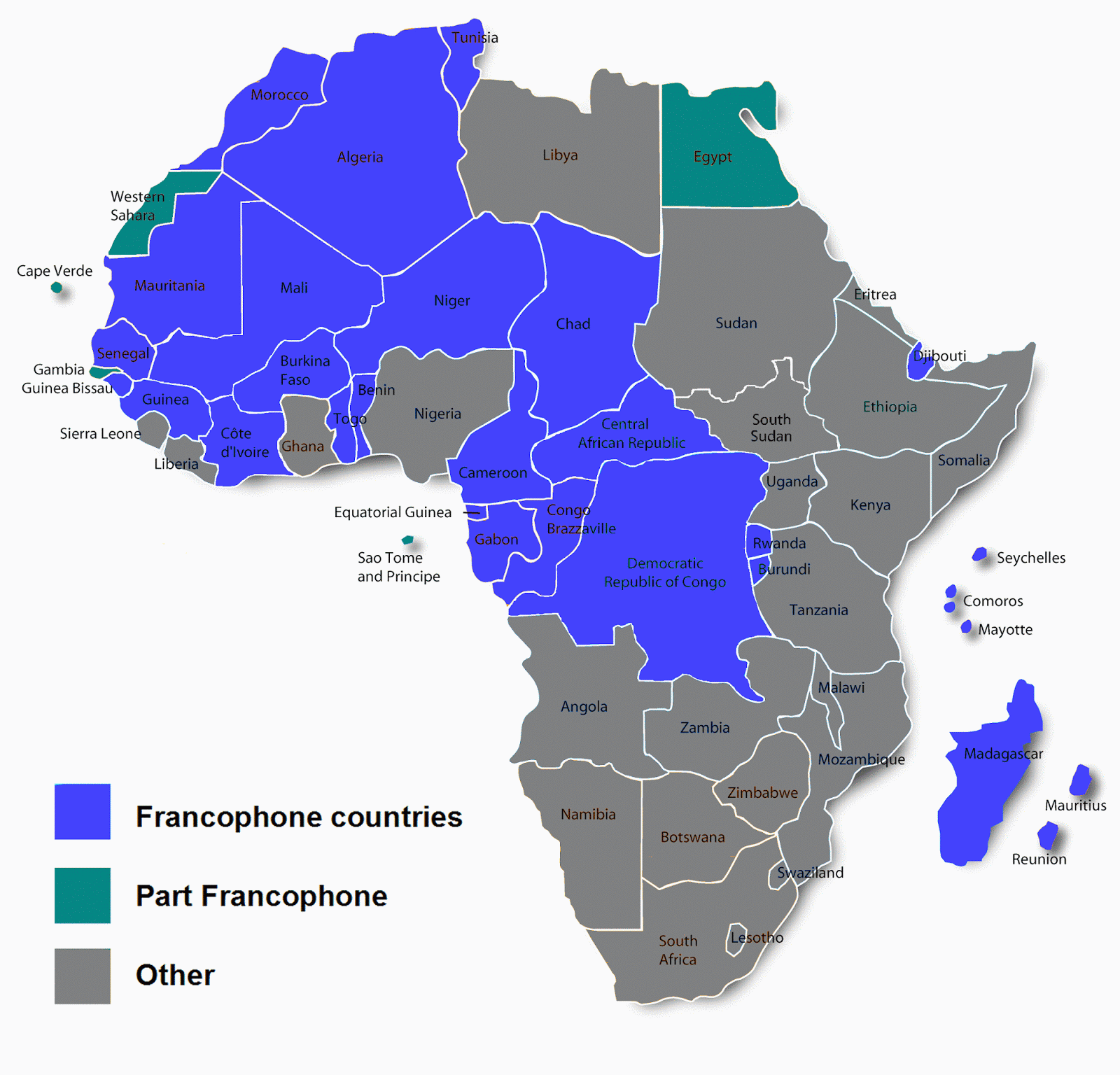A Comprehensive Guide To African French Speaking Countries
Understanding the landscape of African French-speaking countries is crucial in today's interconnected world. With over 29 countries in Africa where French is either an official language or widely spoken, it reflects a rich tapestry of culture, history, and linguistic diversity. This guide delves into the significance of French in Africa, highlighting the countries where it is predominantly spoken, the cultural implications, and the benefits of learning French in this context.
In the following sections, we will explore the historical roots of the French language in Africa, the socio-economic advantages of being proficient in French, and the unique cultural contributions that these countries bring to the global stage. From Morocco to Madagascar, each country offers a unique perspective on the French language and its impact on society.
This article aims to provide a thorough understanding of African French-speaking countries, the relevance of the French language, and insights into the cultures and communities that thrive within these nations. Whether you're a traveler, a student, or someone interested in learning about linguistic diversity, this guide will equip you with valuable knowledge.
Table of Contents
- History of French in Africa
- Countries Where French is Spoken
- Cultural Significance of French
- Economic Benefits of Speaking French
- Education and French Language
- The Future of French in Africa
- Learning French in Africa
- Conclusion
History of French in Africa
The history of French in Africa dates back to the colonial era when France established territories across the continent. French colonization left a lasting impact on various aspects of life, including language, education, and governance. The following points highlight key historical milestones:
- The arrival of French explorers and traders in the 17th century.
- The establishment of French colonies in West and North Africa in the 19th and early 20th centuries.
- The spread of the French language through education and administration during colonial rule.
- Post-independence language policies that often retained French as an official language.
Countries Where French is Spoken
French is an official language in 29 African countries, with varying degrees of usage. Below is a comprehensive list of these nations:
| Country | Capital | Region |
|---|---|---|
| Algeria | Algiers | North Africa |
| Benin | Porto-Novo | West Africa |
| Burkina Faso | Ouagadougou | West Africa |
| Burundi | Gitega | East Africa |
| Cabo Verde | Praia | West Africa |
| Cameroon | Yaoundé | Central Africa |
| Central African Republic | Bangui | Central Africa |
| Chad | N'Djamena | Central Africa |
| Comoros | Moroni | East Africa |
| Congo (Republic of the) | Brazzaville | Central Africa |
| Congo (Democratic Republic of the) | Kinshasa | Central Africa |
| Djibouti | Djibouti | East Africa |
| Equatorial Guinea | Malabo | Central Africa |
| France | Paris | North Africa |
| Gabon | Libreville | Central Africa |
| Guinea | Conakry | West Africa |
| Ivory Coast | Yamoussoukro | West Africa |
| Madagascar | Antananarivo | East Africa |
| Mali | Bamako | West Africa |
| Niger | Niamey | West Africa |
| Rwanda | Kigali | East Africa |
| Senegal | Dakar | West Africa |
| Seychelles | Victoria | East Africa |
| Togo | Lomé | West Africa |
| Vanuatu | Port Vila | Oceania (but includes African cultural influences) |
Cultural Significance of French
The French language serves as a bridge connecting diverse cultures across Africa. Here’s how French cultural influences manifest:
- Literature: Many African authors write in French, contributing to a rich literary tradition.
- Music: Genres such as Afrobeat and Francophone rap reflect the blending of local languages and French.
- Cinema: French-speaking African cinema has gained international recognition, showcasing unique narratives.
- Cuisine: French culinary techniques are combined with local ingredients, creating a distinct gastronomic culture.
Economic Benefits of Speaking French
Proficiency in French opens doors to various opportunities in the job market, particularly in international business and diplomacy. Here are some advantages:
- Increased employability: Many multinational companies seek French-speaking employees.
- Access to international markets: French is an official language in several international organizations.
- Networking opportunities: Speaking French allows for connections with professionals across Francophone countries.
Education and French Language
French is a primary language of instruction in many African countries, influencing educational systems significantly:
- Curriculum: Students often study various subjects in French, affecting comprehension and performance.
- Higher education: Many African universities offer programs in French, attracting a diverse student body.
The Future of French in Africa
The future of French in Africa looks promising due to several factors:
- Population growth: The number of French speakers in Africa is projected to increase significantly.
- Global interest: As Africa becomes more influential, the demand for French language skills will rise.
Learning French in Africa
For those interested in learning French, numerous resources and institutions provide quality
Funny Jokes For Adults: A Collection Of Hilarious Humor
Creative Nicknames For Boyfriend: A Comprehensive Guide
Cash Money Slim Net Worth: A Comprehensive Look At His Financial Success


